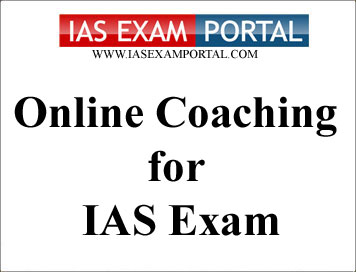(MCQ) IAS PRE GS Online Coaching : Polity - "Fundamental Rights"
Sample Material of Our Online Coaching Programme
(MCQ) Polity: Fundamental Rights
1. Consider the following statements.- A right is a legal claim that a citizen or any other individual is granted by the constitution or any statute.
- Rights are the essence of democracy as they empower the individuals & enable to develop.
- Rights are associated with equality in contemporary times & estabish a level playing field among the people.
- Right to education became fundamental right by the insertion of Art 21A by the constitution 86th Amendment Act 2002.
Which of the above statement are incorrect.
- 1 & 2 only
- 1 & 3 only
- 2 & 3 only
- None of the above
2. Consider the following statements.
- Natural rights are universal rights which are inherent in every individual being a part of human nature.
- Civil rights are the rights that a citizen of a country enjoy & are conferred by the constitution or the law of the country.
- Article 15, 16, 19, 20 & 29 in the Chapter on Fundamental Rights in the Indian constitution (Part III) are available to Indian citizen only.
- Human Rights are contained in United Nations universal declaration of Human Rights 1948.
Which of the above statement is / are correct.
- 1 & 4 only
- 1 & 3 only
- 1, 3 & 4 only
- All of the above
3. Which of the following statements is incorrect.
- The concept of Fundamental Rights are borrowed from American Constitution where they are found in the Bill of Rights.
- If Fundamental Rights are violated the aggrieved individual can approach the Supreme Court of India directly.
- Supreme Court of India can issue the Writs in defence of Fundamental rights as well as for other rights outside Part III of the constitution.
- Fundamental Rights include individual & group rights are common to most liberal democracies.
4. Consider the following statements.
- In 1928, a series of All Party Conferen-ces headed by Motilal Nehru drafted a constitutional scheme, called the Nehru Report.
- In 1931, the Indian National Conference in its Karachi Session committed it which included social & economic rights in favour of the lower castes & for a living wage for the workers.
Which of the above statement is / are incorrect.
- 1 only
- 2 only
- Both 1 & 2
- Neither 1 nor 2


